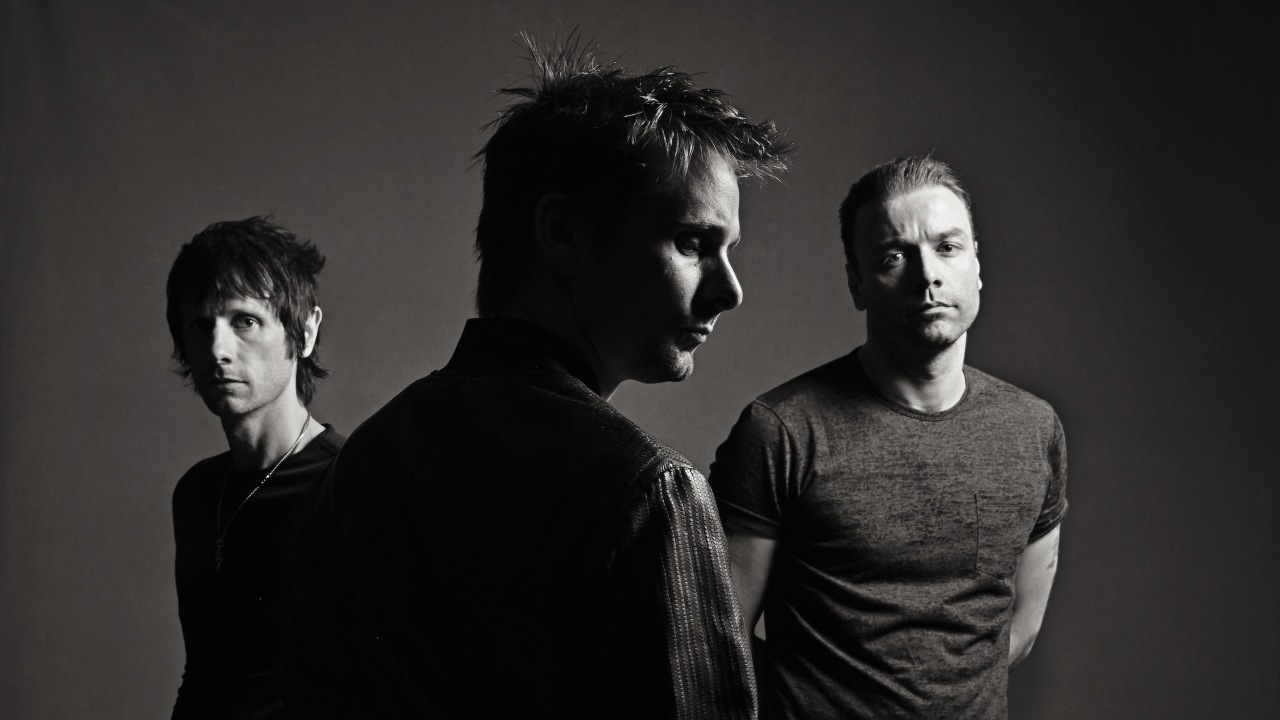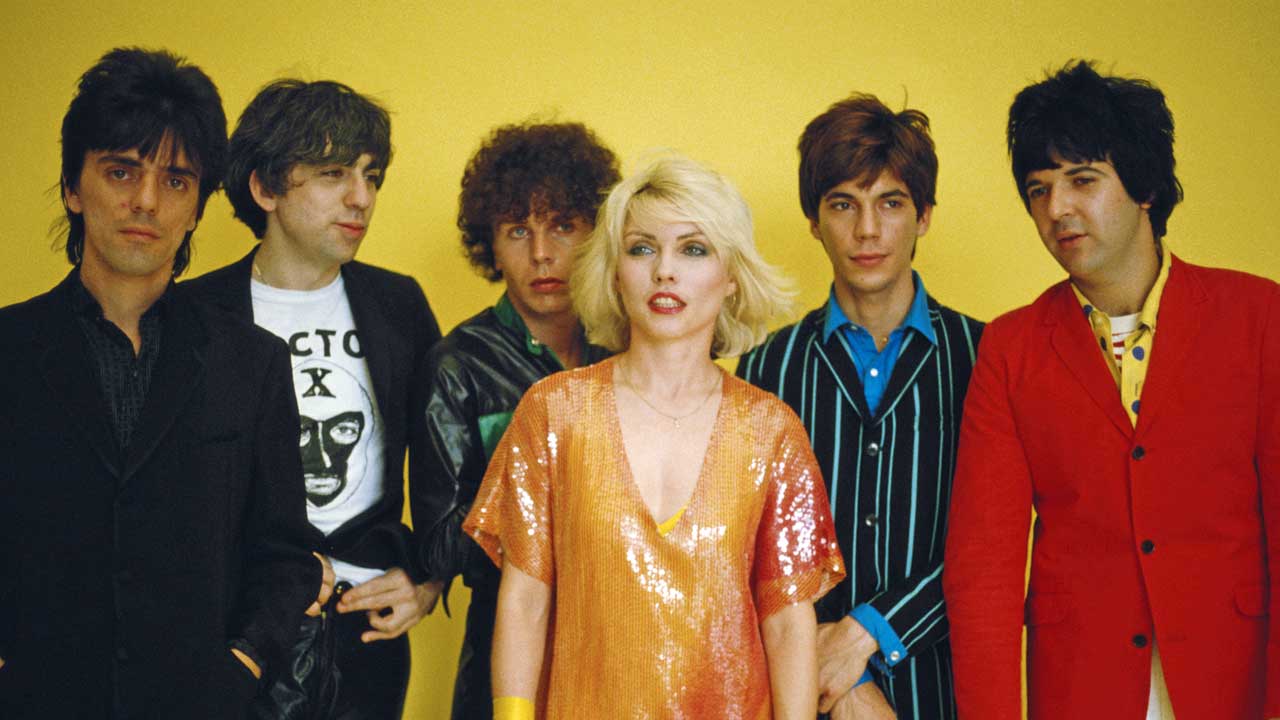You can trust Louder
It was perhaps inevitable, after more than a decade of intergalactic ambition and stadium-rocking space-metal spectacle, that Muse would eventually crash back down to Earth. Most big bands make their equivalent of Pink Floyd’s The Wall at some point, and Matthew Bellamy has now delivered his. A coldly impersonal concept album recorded in the depths of a personal crisis, Drones starts off uncomfortably numb, and finishes up apocalyptically bleak.
“The world is run by drones utilising drones to turn us into drones,” the Muse frontman claims. Like the Russell Brand of rock, Bellamy has returned from Hollywood exile to bash us around the ears with dark conspiracies and new-found political anger. Wake up and smell the Truth, sheeple!/o:p
Based on the topical theme of military drones, both literally and metaphorically, the West Country trio’s seventh album was recorded just as Bellamy split from his long-term partner, Hollywood actress Kate Hudson. Just how much this private drama informed the music is obviously pure speculation, but the lyrics are bitterly cynical about love and empathy, drawing parallels between domestic emotional disconnection and remote-control techno-age warfare. /o:p
Drones was co-produced by elder statesman Robert John ‘Mutt’ Lange, famous for his multi-platinum collaborations with AC/DC, Def Leppard, Bryan Adams and more. It’s an unexpected choice for Muse, perhaps, suggesting a move away from their baroque-and-roll sci-fi overdrive towards rock’s centre ground. There are still Queen-sized fanfares, maximalist flourishes and striking sonic experiments here, notably a hymnal a cappella title track composed purely of overlapping vocals. But the overall sound is polished and conventional, as Bellamy sets aside his past flirtations with pounding dubstep and punky electronics. Shame.
The sleeve design is also – how can we put this politely? – laugh-out-loud awful. Muse have always favoured ostentatious album artwork in the Pink Floyd tradition, even working with Floydian legend Storm Thorgerson. This time they opted for photographer and video director Matt Mahurin, who has previously done great work with Tom Waits, Marilyn Manson, Bon Jovi and many others. But Mahurin’s image of a giant Orwellian hand operating a faceless human joystick just looks amateurish and adolescent. The figure’s resemblance to a Peperami sausage only adds to the air of unintended comedy. Not a promising start.
The tracks loosely follow a fall-and-rise arc in which the narrator descends into totalitarian mind-control hell, before finally breaking free and fighting back. His journey begins with the U2-ish sparkle-rock shimmer of Dead Inside and the walloping fuzz-bass glam-rock groove of Psycho, a crudely effective workout for the band’s powerhouse rhythm section Chris Wolstenholme and Dominic Howard. The latter tune is prefixed by the short spoken-word track Drill Sergeant, which shares some of the same lyrics, and plays on stale movie stereotypes of the cruel military taskmaster: ‘your ass belongs to me now… your mind is just a program and I’m the virus.’ Subtle as a punch in the testicles.
Lyrics are admittedly not Bellamy’s strongest point, but he has never crammed quite so many ungainly, clichéd and po-faced lines onto a single album before. Over the fluid, Coldplay-ish ripples of Mercy he envisages ‘men in cloaks trying to devour my soul’. On the fightback anthem Revolt, he claims ‘we live in a toxic jungle, truth is suppressed to a mumble.’ Ouch. At least Russell Brand would throw in a few knob gags to keep it interesting.
Sign up below to get the latest from Classic Rock, plus exclusive special offers, direct to your inbox!
Midway through the album sits JFK, a long extract of John F. Kennedy’s landmark 1961 speech in which he warned about a “monolithic and ruthless conspiracy” against democratic freedoms. He was talking about the Soviet Union, of course, though Muse believe this Cold War relic will resonate in our new mass-brainwashed Dark Ages. It’s a bold ambition, albeit fuzzy in intent, the rockstar equivalent of posting inspirational Morgan Freeman quotes on Facebook.
Bellamy concedes there is “not a lot of love” on Drones. He’s right, but two stirring power ballads in the album’s closing stages warm up the overall emotional temperature. Aftermath begins very much like U2’s One, a slow-burn lament with a gently imploring circular guitar hook and a lyric full of battle-scarred, world-weary tenderness. Lovely.
But Muse save their full 1812 Overture arsenal for The Globalist, a majestic finale which begins with whistles and twangs worthy of Ennio Morricone, erupts into a tumescent speed-metal riff monster midway through, then ends on a soaring Lloyd Webber-sized show-stopper about the imminent death of mankind: ‘A trillion memories lost in time forever!’ Bellamy howls as planets collide and stars implode. This is the way the world ends: with a bang and a whimper. And a symphony orchestra.
Epic melancholy romanticism has always been one of Muse’s saving graces, a glorious rebuttal to snooty critics who hear only bombast and bluster in their music. But there is too little of it on this album, and too much middling Muse-by-numbers.
Great in parts, but flat and clumsy in others, Bellamy’s bid to become more serious appears to have stunted what he does best, which is operatic excess fuelled by volcanic emotion. To stretch a metaphor, Drones sometimes feels like it is flying on autopilot, and too often misses the target./o:p
Stephen Dalton has been writing about all things rock for more than 30 years, starting in the late Eighties at the New Musical Express (RIP) when it was still an annoyingly pompous analogue weekly paper printed on dead trees and sold in actual physical shops. For the last decade or so he has been a regular contributor to Classic Rock magazine. He has also written about music and film for Uncut, Vox, Prog, The Quietus, Electronic Sound, Rolling Stone, The Times, The London Evening Standard, Wallpaper, The Film Verdict, Sight and Sound, The Hollywood Reporter and others, including some even more disreputable publications.


